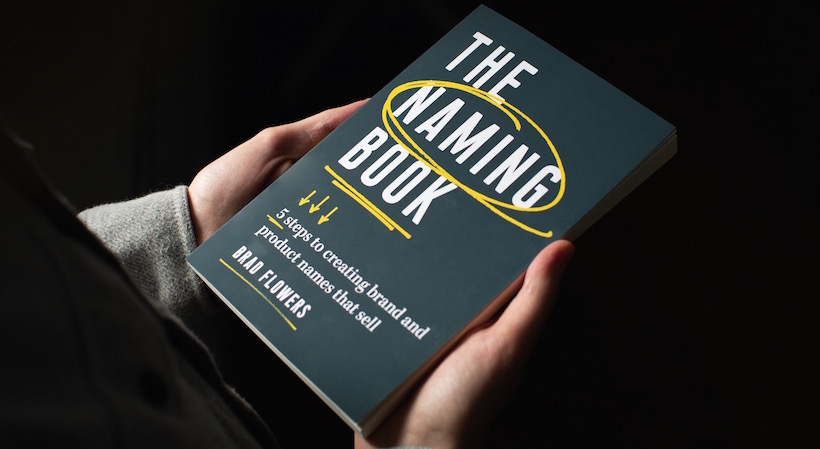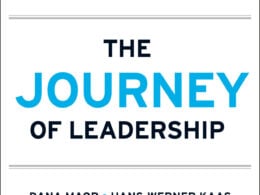The following is excerpted from “The Naming Book: 5 Steps to Creating Brand and Product Names that Sell” by Brad Flowers and is reprinted with permission of Entrepreneur Media, Inc. ©2020 by Entrepreneur Media, Inc. All rights reserved.
It may go without saying, but, yes, the name of a business is pretty important. It is the first big decision that makes other decisions easier. It sets the tone for what the logo should look like, for what colors make sense, and for the rest of the internal and external brand language (more on this later). A company called Apple is going to look and sound fundamentally different from a company called Microsoft.
Prepare yourself mentally for what is to come. The best name in the world will sound strange initially. As Robert Leduc notes in his book, “How to Launch a New Product,” the name sounds strange because it is out of context. You will never again see just the name on a piece of paper. You will see the brand.
Over time, a name comes to represent the organization and lend cachet to its brand value.
StartupNation exclusive discounts and savings on Dell products and accessories: Learn more here
However, your own experience with that organization can change how you perceive the name. For example, no name in the world will make you like your internet provider if their rates continue to go up, your service is intermittent, and you can’t get anyone on the phone to help you. No matter how much you like the name “Ikea,” if they short your hardware on one shipment and send something broken in the next, your feelings will change—and not for the better.
In other words, a name does not stand alone. It changes in relation to consumer interaction.
One example is the Ford Edsel, a failure so dramatic that it is covered in business classes around the world. The name is often cited as a reason for the failure. It was named after Henry Ford’s son, Edsel Ford. It is probably not a good name for a car, but that was only part of the problem. The marketing was a disaster. The car had reliability problems. The taillights were shaped like arrows, so when the turn signals were on, they looked like they were pointing in the wrong direction. And many people simply thought it was an ugly car.
Did the Edsel fail because of marketing, design, or manufacturing? Or was it the name? Names are complicated because they live within the brand ecosystem; they are part of the “brand personality.” In other words, the name is only part of the experience you have with a brand. You also experience a brand through their graphic design choices and how (or if) they answer the phone. You might interact with an employee the company hired and trained. You go to the company’s physical location or their website. You actually use the product or service.
That’s not to say the name isn’t an important part of the brand strategy. Put simply, your brand strategy is your long-term plan for how your product or service will interact with the public. That strategy can include marketing, design, manufacturing, etc. The name is important because it becomes the shorthand for all those interactions in the consumer’s mind.
Related: Who or What is Your Brand’s Nemesis? A McLaren Case Study
The fact that there is more to an organization than the name can be liberating. Yes, choosing a name is difficult, but relax—the name is only part of the experience. A good name can give a good business an advantage, but the best name in the world can’t save a bad business.
Think of your business like an iceberg. The name is the tip. The tip is important, because that’s the part we see. The name really has to do two things. It has to distinguish your iceberg from similar ones, and it can’t misrepresent the iceberg. Don’t try to claim it’s a volcano or a rainforest. The rest of the iceberg is your business model, employees, service, product, location, and culture. Just like with icebergs, there is much more going on with your business under the surface.
Names are important, but let’s face it: Organizations with bad names succeed all the time. And companies with good names fail. That doesn’t mean this process you are about to go through isn’t important. It just means that it isn’t the only important thing you have to do.
Remember, you don’t have to strike oil with this name. By that, I mean you don’t need to stress if the right name doesn’t immediately appear. Naming a business is a journey, made up of stops along the way. You are on a road trip, and all you have to do is find one gas station, and then the next. Before you know it, you’re there.
Case Study: Evol Foods
There are few places that compete for your attention like the grocery store. In my local store, there are 25 freezers just for ice cream and other frozen desserts—more than a thousand options. It’s a similar story with toothpaste. It’s even hard to choose toilet paper: single roll, double roll, mega roll, two-ply, quilted, ultra-strong, and so on.
One day I was at the store looking for a reasonable lunch option for my kids. Staring into one of the freezers next to all the ice cream, I came across a company called Evol that claimed to sell healthy frozen food. The name caught my attention, the tag line appealed to my sensibilities, and I suspected my kids would eat the burritos. So I bought some.
“Evol” is a strange name, but let’s take a look at how they designed the logo. The “e” is backwards, while the other letters are symmetrical, so your brain automatically flips it around to read “love,” a word I am sure the company could not trademark.
Still, it’s definitely odd—but that’s why it works. Let’s examine it in terms of the criteria you read about in this chapter.
Meaning
It is clear that they want you to see “love.” But their tag line, “Good is Evol,” makes it obvious that it also sounds like “evil.” So which is it? Maybe they’re simply trying to point out that frozen foods are usually junk and theirs is wholesome. But that’s a bit of a stretch. So the meaning is ultimately ambiguous and confusing.
Unusualness
I would guess this was top priority. They needed something that stood out. They also likely needed a URL that was short and available. Their market is saturated with advertising; they sell across the United States and potentially beyond. So an uncommon name is a key element to Evol’s success.
Spelling and pronunciation
Difficult spelling is the tradeoff for the unique URL, but this can be irritating in practice.
For example, every time employees mention the company email address, they probably have to spell it:
“My address is [email protected]. No, evol with an o. E-V-O-L.”
That must get pretty tedious. There’s also a pronunciation issue. Do you say it like the first part of “evolve” or does it sound like “evil”? Ambiguous pronunciation is a barrier. If you are too self-conscious to say a product’s name, you are less likely to ask for it. However, here, you take the product off the shelf yourself. So maybe it works. But would you tell a friend about it?
Tones
Evol doesn’t publish brand guidelines, but I would imagine its tones are something like vibrant, wholesome, and smart. That comes through in its name and branding.
Sign Up: Receive the StartupNation newsletter!
Bottom line
I wouldn’t have named the company Evol. I find it gimmicky and self-conscious. I also think the pronunciation mix-up with “evil” outweighs the other interesting things the name does. But the name is still the main reason I bought the burritos. I paused for a second in front of the freezer doors, skimming past hundreds of available products, and looked at that particular product again.
That is a home run. How many times have you bought a product because of the name? Probably not many. So the question is, does it matter that I don’t like the name if it works? Probably not. Kudos to them for a bold choice.
What do you think?
“The Naming Book: 5 Steps to Creating Brand and Product Names that Sell” is available now wherever books are sold and can be purchased via StartupNation.com.






